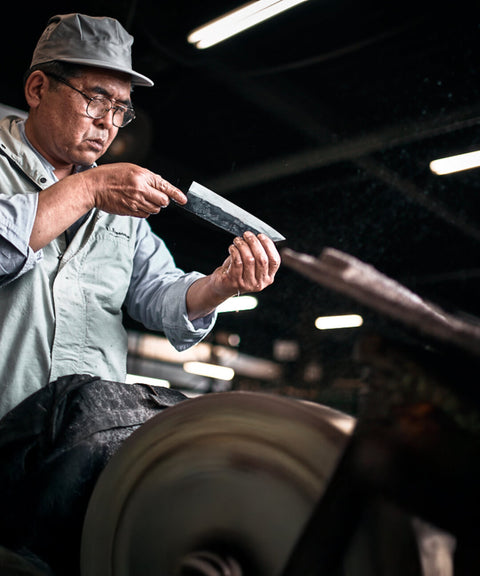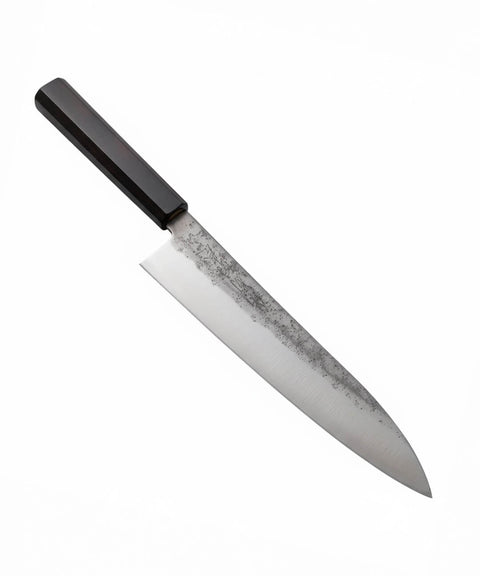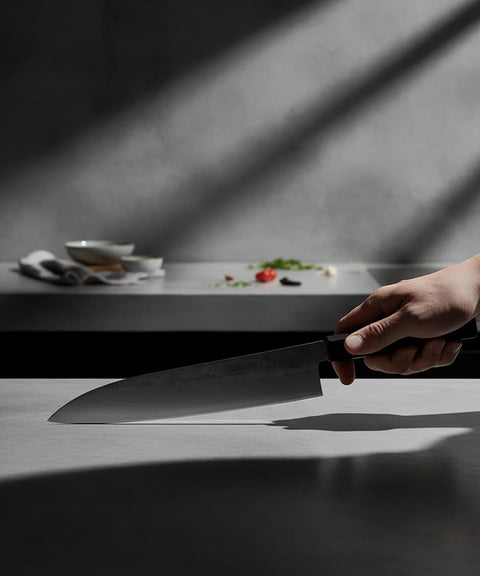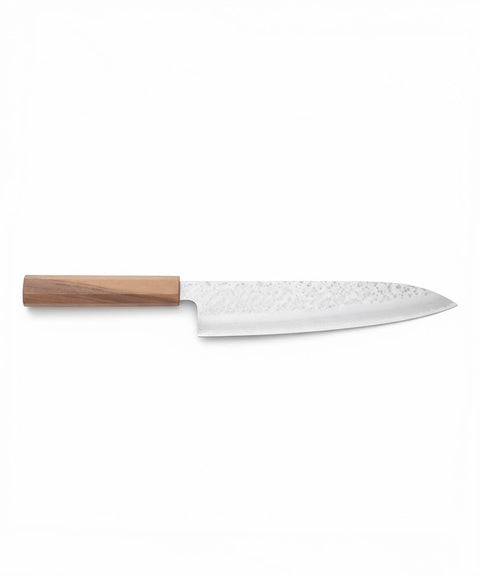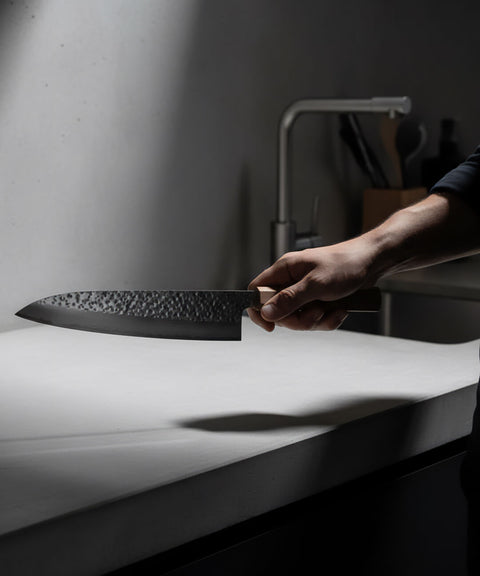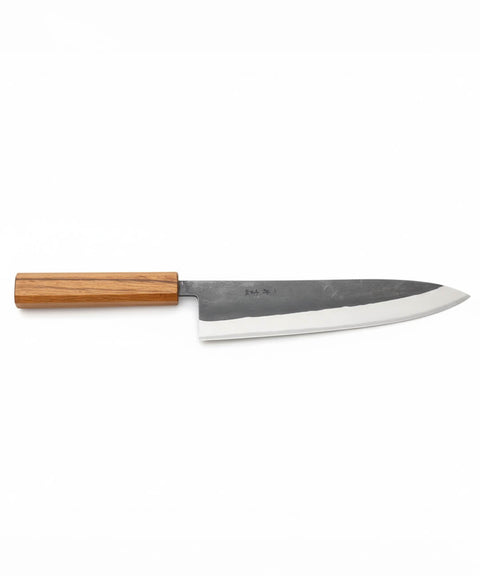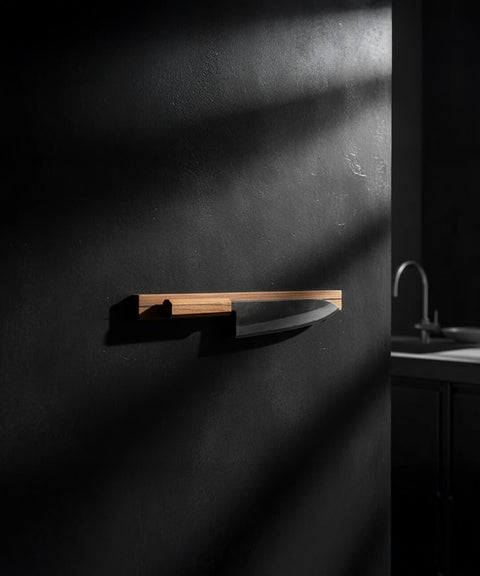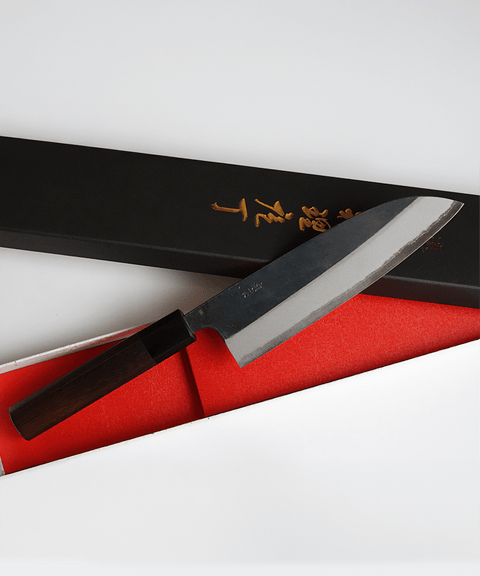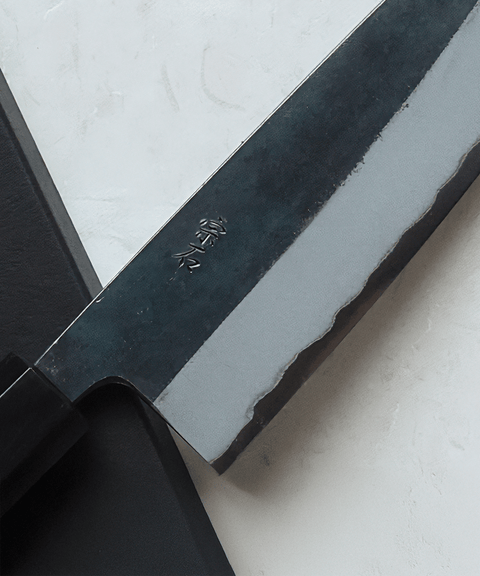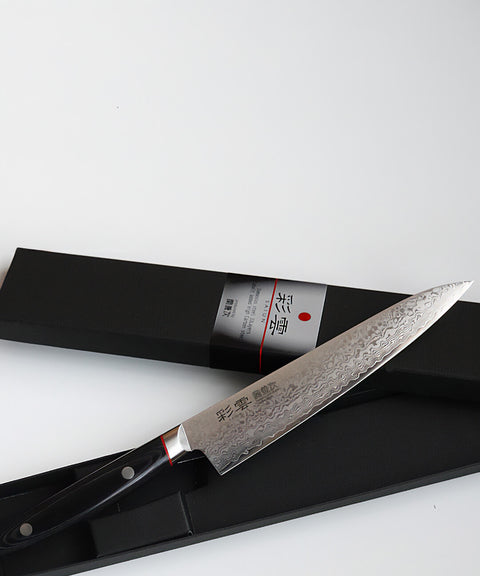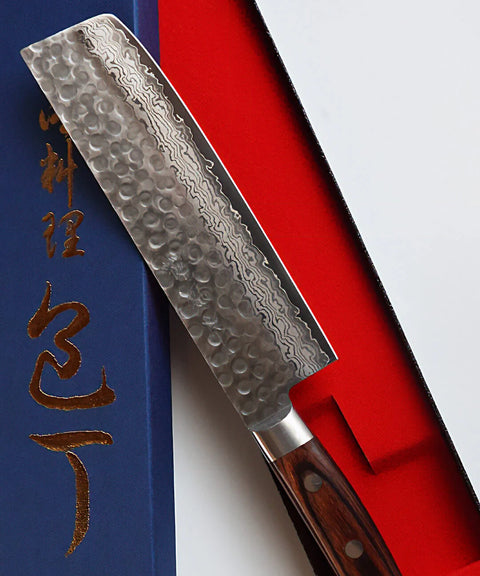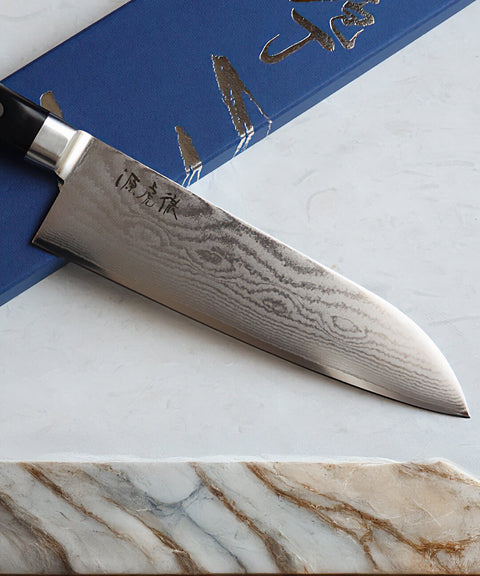
Damascus steel is a fascinating and sometimes polarizing topic in the world of kitchen knives. In fact, not long ago we discussed whether Damascus steel knives are any good or not on our blog.
Some people see it as a purely aesthetic choice, while others consider it one of the best options due to its strength and performance. But what makes Damascus steel knives so popular and sometimes so expensive? Here we explain everything you need to know to decide if Damascus steel is right for you.
What is Damascus steel?
The term "Damascus steel" refers to a type of steel forged from the combination of several types of metals, which are hammered, folded, and then welded together to create a unique and distinctive pattern on the surface of the blade. These wavy or spiral patterns are what give Damascus steel its aesthetic appeal, but they are also a sign of the complex technique used in its manufacture.
Origins of Damascus steel
The original Damascus steel was used in sword making in the Middle East and was made from a material called Wootz steel , which was produced in India and traded to Middle Eastern swordsmiths. These swords were renowned for their beauty, durability and sharpness, but the process for producing Wootz steel was lost in the 18th century, meaning that Damascus steel as it was known in ancient times no longer exists.
The modern Damascus steel we know today is based on a technique called Pattern Weld , which creates a visual effect similar to ancient Damascus steel, but using a combination of modern steels.
How is Damascus steel made?
Today, Damascus steel is produced using a combination of high and low carbon steels , sometimes with additions of nickel or other metals. These steels are layered and forged together using pattern welding, then repeatedly folded to create multiple layers and an intricate pattern on the blade.
The final process involves etching the blade with acid so that the different layers of steel react differently, revealing the characteristic Damascus pattern.
Damascus steel for kitchen knives
Damascus steel kitchen knives are a popular choice among both professional chefs and hobby cooks. These knives are not only functional, but they are also visually stunning pieces due to their unique patterns.
In many cases, Damascus steel is used as a cladding over a high-performance steel core, such as high-carbon steel. This combines the best of both worlds: a sharp, tough edge, thanks to the core, and a durable, beautiful outer protection.
Beautiful Santoku Damascus specimen
How to clean a Damascus steel knife?
Cleaning a Damascus steel knife is easy, but you should take some precautions to avoid damaging the finish and edge:
-
Hand wash : Never put a Damascus steel knife in the dishwasher, as harsh detergents and heat can damage the pattern and edge.
-
Dry immediately : After washing, dry immediately to prevent rust. Although many Damascus steel knives are made with stainless steels, the inner part or core may be high carbon, making it susceptible to rust.
-
Use protective oil : If you don't use your knife often, apply a light coat of oil to protect the blade from moisture and possible stains.
>> In this blog post we talked about how to take care of your Japanese knives.
How to sharpen a Damascus steel knife?
Sharpening a Damascus steel knife follows the same process as other high-quality knives. Here are some key tips:
-
Use a quality sharpening stone : Medium to high grit stones (1000-8000) are ideal for sharpening Damascus steel knives.
-
Be careful with the angle : Keep the correct angle while sharpening to avoid damaging the edge or the Damascus coating. Typically, the ideal angle is between 15° and 20°, depending on the type of knife.
-
Leather Strop : Finish sharpening with a leather strop to remove any burrs and achieve a perfect finish.
>> See more natural sharpening stones
Is Damascus steel better than modern steel?
The question of whether Damascus steel is better than modern steel does not have a simple answer. Modern Damascus steel, while visually impressive, does not necessarily outperform certain exotic modern steels that have been engineered for greater durability and corrosion resistance.
However, a well-made Damascus steel knife offers an excellent balance between durability, sharpness, and wear resistance . Plus, its unique aesthetic makes it a popular choice among those looking to combine performance with stunning looks.
Final thoughts
The real appeal of Damascus steel knives lies in their visual beauty and the quality craftsmanship that goes into their manufacture. While not necessarily better in terms of pure performance than some modern steels, a well-made Damascus steel knife can be an excellent addition to your kitchen, both for its functionality and its appearance.
Remember that, as with everything, you get what you pay for. If you find a Damascus steel knife at a very low price, it is likely not made with the same level of detail and precision as higher quality knives.
>> Discover our collection of Damascus steel knives at Ryo Miura Japan and add a unique piece to your kitchen.

